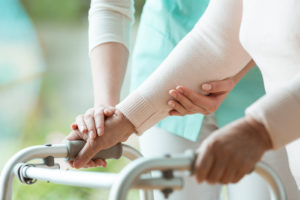Slowly but surely this year’s brutal winter is fading away. The weather is getting nicer and it is time for you to get out and enjoy it.
Getting out is great for you at any age.
If you’re looking to stay active and healthy as a senior, outdoor activities are a great option.
Furthermore, it is a well-known fact that physical activity is helpful when it comes emotional, mental and cognitive health.
Participating in outdoor activities may also be a great way for you to meet new friends and build healthy relationships!
Basically, no matter how you spin it, outdoor activities are great for you no matter how you look at it.
In today’s post, I am going to give you 12 outdoor activity ideas that you can get involved with this year.
Outings for seniors: 12 outdoor activity ideas for seniors
Walking-Walking is always the easiest way to get outside. It doesn’t have to be a long walk. It could be a simple walk around your neighborhood which might include saying hello to everyone as you go along.
Running-If you were a runner in the past, this might be a good one to pick up again.
Hiking-Do you have hiking trails in your city? Visit them and take a hike.
Beach walks-This is certainly an option if you live in the San Diego and Orange County areas. I don’t know about you but there is something calming about walking near a beach and hearing the waves crash on the shore.
Climbing-Check to make sure this is a healthy activity for you before you get involved in climbing. Climbing can certainly be on the “daredevil” side when it comes to outdoor activities. So make sure you’re cleared to climb before you do.
Cycling-Cycling is another classic outdoor activity that does not require expertise except unless you will cycle complex trails. A ride in and around your neighborhood might be just what you need.
Swimming-Swimming is great exercise and laying in that water is always relaxing!
Fishing-Apart from the great conversations that can happen as you fish, you just might catch your dinner.
Bird-watching-Are you a nature enthusiast? You might enjoy bird-watching.
Hunting-While I have never understood the thrill that hunters have, they definitely seem to enjoy the experience. If you live in a rural area that allows hunting and you have the appropriate license, this might be a really good one for you.
Geocaching-Wikipedia defines geocaching as an activity where people use GPS receivers and other navigational techniques to find boxes and containers that are marked by coordinates all over the world.
If you ever enjoyed treasure hunting movies or would love to treasure hunt yourself, geocaching may be an excellent activity for you.
Camping-Sleeping in a house may be comfortable but it can get boring! Enjoy nature directly by camping out in the woods!
Fruit-picking-You will get your exercise in and have fruit for days to come.
There you have it- twelve outdoor activities for seniors.
And all of them accessible enough that you could start participating today.
If you enjoyed this post, share it with someone else who might be looking for outdoor activity ideas suited for them.









